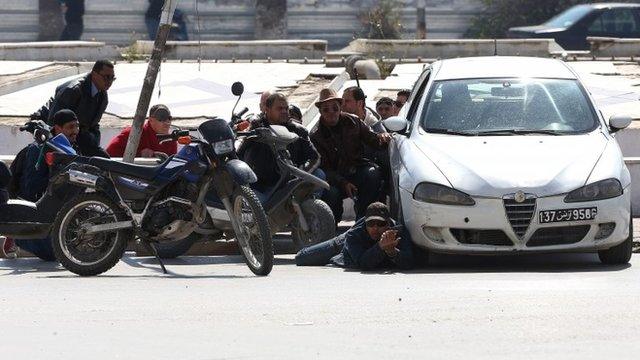Tunis museum attack: Gunman Laabidi was known to security services, says PM
- Published
The BBC's James Reynolds: "Tunisia has managed to avoid the larger wars which have hit other Arab states, but this attack... reveals its vulnerability"
A gunman involved in the attack that killed 20 tourists at the Bardo museum in Tunis was known to the authorities, Tunisia's prime minister has said.
Habib Essid told RTL Radio that security services had flagged up Yassine Laabidi, but were not aware of "anything specific" or of any links to known militant groups.
A Tunisian police officer also died in Wednesday's attack.
Both gunmen were killed. A search is on for suspects linked to them.
Two or three accomplices are still at large, an interior ministry spokesman told AFP news agency. The spokesman said both attackers were "probably" Tunisian. The second gunman has been named as Hatem Khachnaoui.
The tourists killed in the attack include visitors from Japan, Italy, Colombia, Australia, France, the UK, Poland and Spain, officials said.
On Thursday, three people - two Spanish tourists and one Tunisian museum worker - were found at the museum after having hidden there overnight, police said.
Tunisia's Culture Minister, Latifa Lakhdar, told reporters that the museum will re-open to the public early next week.
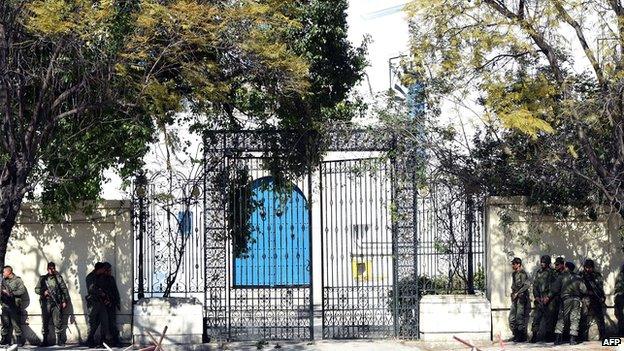
The attack targeted one of the most popular tourist attractions in Tunis
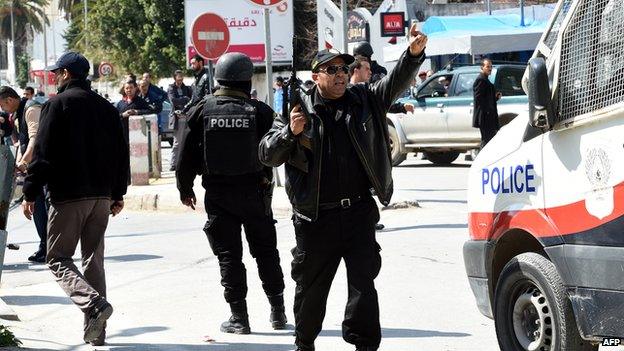
Security services eventually took control of the museum
Officials say more than 40 people, including tourists and Tunisians, were injured. The gunmen were killed after holding tourists hostage for several hours at the museum.
Speaking after the attack on national TV, Tunisia's President Beji Caid Essebsi said the country would not be cowed by terror attacks.
"These monstrous minorities do not frighten us," he said. "We will resist them until the deepest end without mercy."
At the time of the attack, deputies in the neighbouring parliament building were discussing anti-terrorism legislation.
Sayida Ounissi, an MP, told BBC Radio Four's Today programme that the security services had said the gunmen had originally planned to attack parliament.
A statement released by a jihadist media outlet gave a similar account, saying the gunmen began killing tourists after being repelled by police at the parliament. The statement did not say which group carried out the attack.
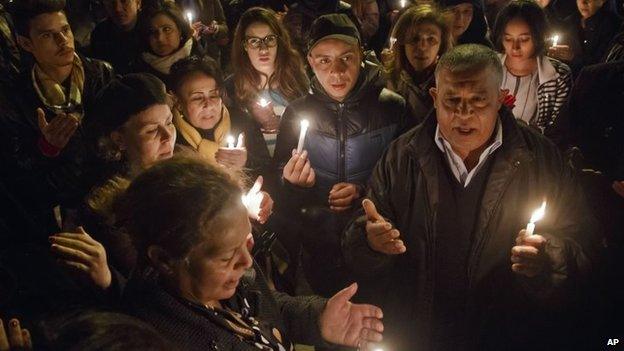
Protesters lit candles and prayed at the gate of the museum
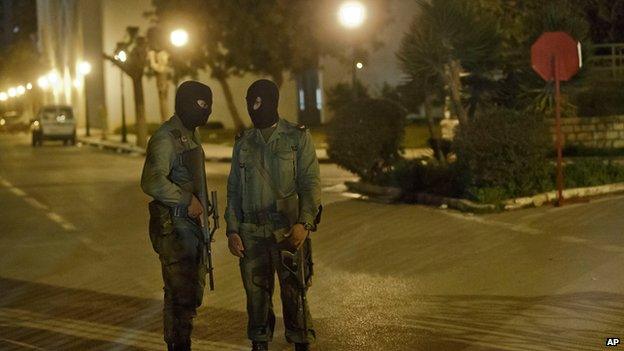
Security was stepped up across Tunis, including at the museum
Many Tunisians took to the streets of central Tunis to protest against the attack, waving flags and lighting candles outside the museum.
World leaders condemned the attack and expressed their support for Tunisia's counter-terrorism efforts.
The UN Security Council issued a statement saying no terrorist action could reverse Tunisia's path towards democracy. The statement offered condolences to those affected by the attack, and called for the perpetrators to be brought to justice.

Who were the victims?
According to Tunisian authorities, 23 people were killed - though it is not clear if totals provided by the authorities include the gunmen. Some of the countries involved have given different totals and not all the dead have been identified. The dead include:
At least three Tunisians, including a police officer involved in the security operation
Five Japanese were killed, according to Mr Essid - although Japan says it has only confirmed the deaths of three citizens
Four Italians
Two Colombians
Two Spaniards
One national each from the UK, Australia, France and Poland

The attack is a huge blow for Tunisia's tourism industry and its government, which only emerged at the end of a long political transition several months ago, the BBC's Arab affairs editor Sebastian Usher says.
Islamist militants have tried to derail the democratic transition, which, although fragile, remains the most positive result of the Arab Spring in the Middle East, our correspondent adds.
Tourism is a key sector of Tunisia's economy, with large numbers of Europeans visiting the country's resorts.
In 2002, 19 people, including 11 German tourists, were killed in a bomb blast at a synagogue in the resort of Djerba. Al-Qaeda said it had carried out that attack.
Concerns about security in Tunisia have increased in recent months as neighbouring Libya has become increasingly unstable.
A large number of Tunisians have also left to fight in Syria and Iraq, triggering worries that returning militants could carry out attacks at home.

The Bardo National Museum
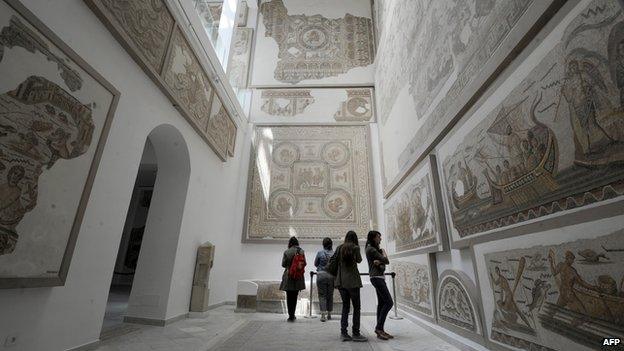
The museum is a major attraction in Tunisia
Tunisia's largest museum, built in a 15th Century palace
Contains 8,000 works, including one of the world's largest collections of Roman mosaics
Some items in the collection are more than 40,000 years old
A new wing was added in 2009, doubling its size


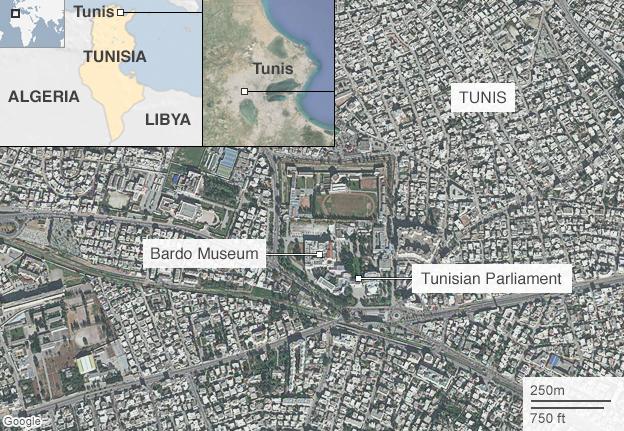
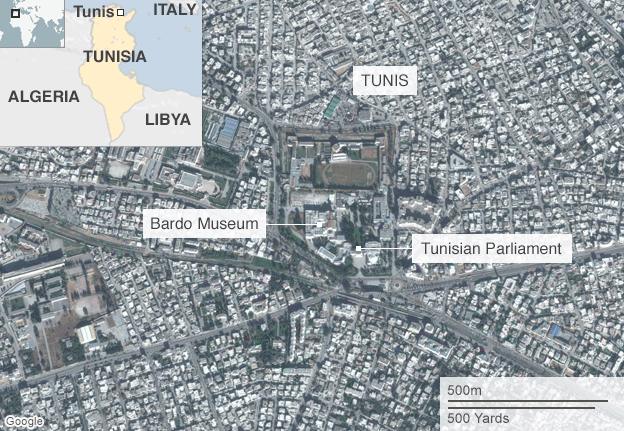
- Published18 March 2015
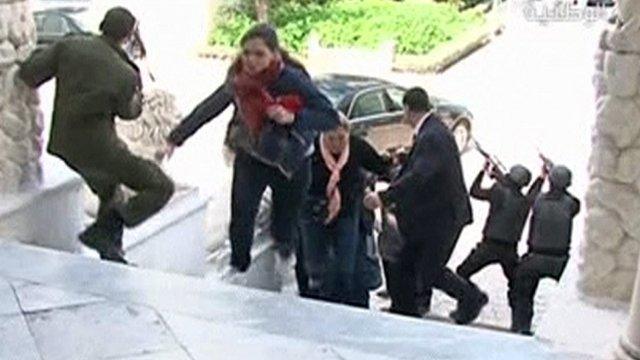
- Published19 March 2015
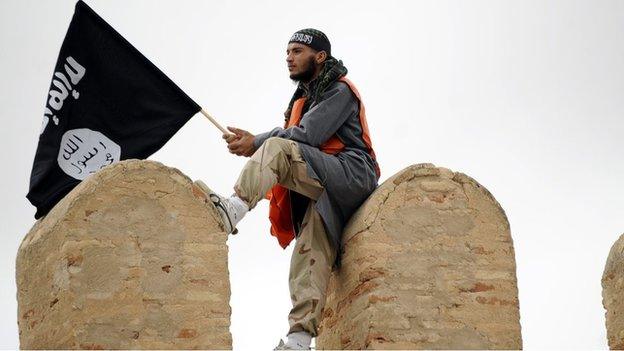
- Published18 March 2015
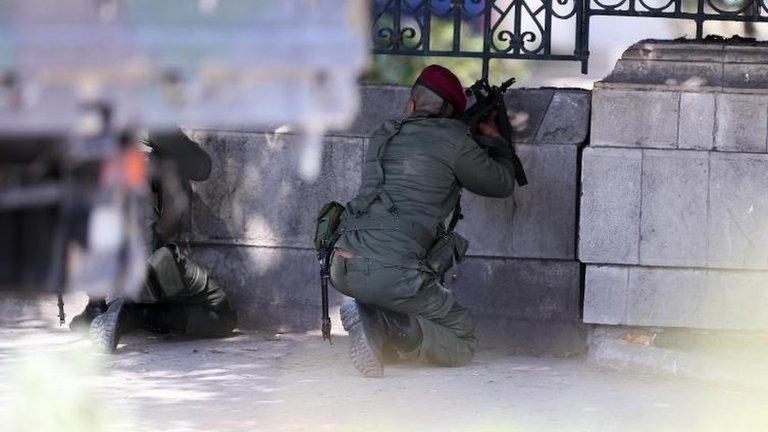
- Published18 March 2015
